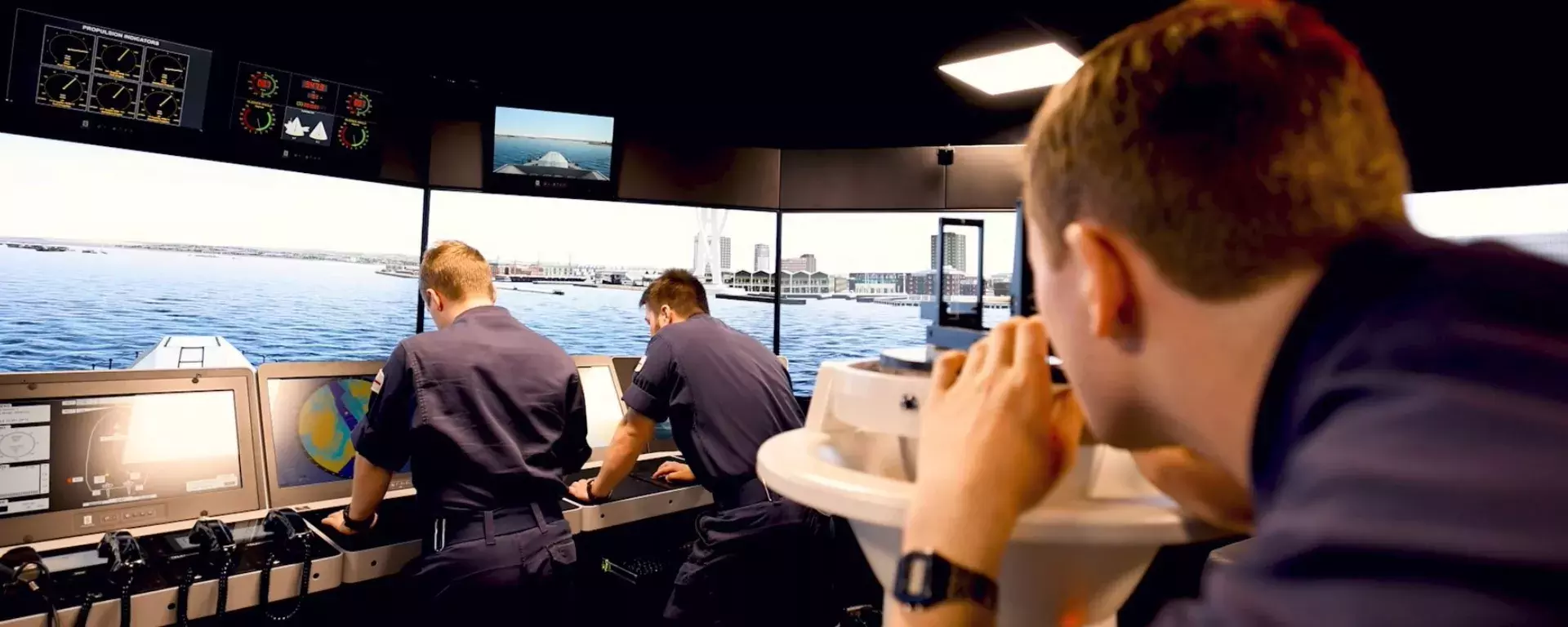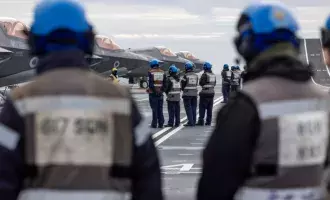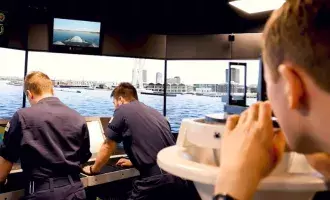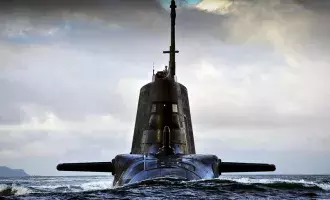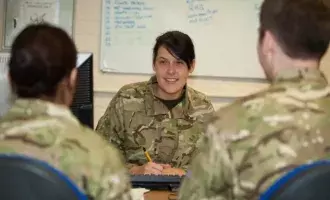It’s the Royal Navy’s responsibility to protect and defend the UK’s strategic interests around the world. Throughout its history, the Royal Navy has seen many different approaches to how its personnel are trained.
However, in the modern Royal Navy one fact is inescapable, it isn’t possible to train personnel on the platforms and environments that they will be deployed in – it’s simply not cost-effective or practical. Therefore, there’s a large requirement for shore-based training to ensure sailors and marines are qualified and skilled to the required level to undertake their roles on the ships, submarines and aircrafts of the senior service.
As training requirements evolved to meet the needs of more modern and technologically advanced equipment, it became clear that the current training system was not as effective or efficient as it needed to be to meet the Royal Navy’s ambition to be a Global, Modern and Ready Navy.
In late 2020, Team Fisher, the Capita-led consortium, won the Royal Navy’s Project Selborne bid. A far-sighted, strategic partnership with the Royal Navy commenced in April 2021 to transform 80% of its shore-based training for sailors and marines. This included all onshore training in establishments across the UK for sailors, marines, ratings and officers. Submarine training was also brought into Selborne, while in parallel the building of a new training school, the Royal Navy Submarine Training Centre (RNSTC) at HMNB Clyde in Faslane, Scotland, was being undertaken. In a radical and far-sighted new approach, Team Fisher became a strategic partner with the Royal Navy, using collaborative behaviours to modernise and overhaul its shore-based training.
The training element of Selborne is based on two key components of delivery: education and training service delivery and education and training transformation – including the submarine training programme. The key objective is to deliver more personalised learning journeys for service personnel and ultimately ensure the Royal Navy can provide better trained people to the frontline faster.
Consistently achieving new milestones in Navy training and education
In its first three years, the programme successfully consolidated 27 contracts into a single, efficient framework and established the foundations for success. All milestones were delivered on time and with all training delivery key performance indicators being green. The key focus of this period was the professional development and upskilling of educators and trainers. Operational subject matter experts were trained in diverse teaching methods, creating a career pathway with fully accredited qualifications. This has led to enhanced training quality and transferable skills for all Royal Navy personnel. Training roles that previously did not exist or may have been the domain of those reaching the end of their careers are now fully recognised as legitimate and professional roles that have a direct influence on the success of the organisation.
Whilst education and training delivery makes up the majority of the programme, we have also successfully installed new training systems, including new bridge trainers at several key locations; modernised and fully technologically enabled the learning environment including virtual reality training headsets for the School of Flight Deck Ops at RNAS Culdrose; and are responsible for fitting out the new submarine training centre at HMNB Clyde, to create a world class, modern training environment for the Royal Navy. We will also be delivering data and AI-led training support, planning, scheduling and quality management, working side-by-side with Royal Navy instructors.
Since April 2021 there have been ten Ofsted inspections of training establishments, air stations and delivery units under the MoD inspection framework covering all the primary delivery areas in scope of Selborne. As of December 2023, Ofsted judged the ‘quality of training and support’ at every single establishment, air station and delivery unit in scope of Selborne to be ‘good’, including the key phase 1 and 2 establishments of HMS Raleigh, Britannia Royal Naval College, Commando Training Centre Royal Marines and HMS Collingwood.
Identifying educators as the key solution
When we signed the 12-year contract with the Royal Navy, it was clear that our educators would be key to the success of Project Selborne. For the programme to succeed, we needed to lay the groundwork quickly and provide the right people with the best support.
As the Royal Navy’s teaching and education had not evolved in recent times, a radical new approach was required - and it was understood and embraced by the Royal Navy. As the result of a forward-looking partnership, over 700 military educators were made functionally accountable to Capita-led teams, and modern best practices were used to dramatically increase engagement levels. Informed by our work with the University of Lincoln (a tier 1 partner), we have designed an evidence-based Team Fisher pedagogical approach that provides a framework for developing our approach to learning across all courses.
Working alongside best-in-class partners such as the University of Lincoln, the Society for Education and Training (SET) and the HOW2 teacher development platform, has enabled both existing and new trainers to receive guidance and access to CPD opportunities. This collaboration further professionalises and acknowledges the importance of these educators’ roles. To date, we’ve seen huge benefits provided by our partners, including:
- Over 13,000 HOW2 resources viewed.
- More than 500 SET memberships activated, making Team Fisher the largest single membership organisation.
- Achievement of ‘Neurodiverse Friendly Employer’ status from Do-It Solutions.
Team Fisher has also designed and implemented a new developmental approach to observing and supporting educators to continually improve their practice and provide them with ongoing support. This process involves trained observers visiting lessons and then following up with a highly individual coaching conversation to understand and agree on how the educator wants to develop their practice, primarily by using the CPD tools provided.
“It’s our educators who make the difference. We have seen that by prioritising their professional development there is a direct, positive impact on the quality of education and training for the Royal Navy. We are investing in the initial and continuing development of our educators to increase the availability of sailors and marines to the frontline, now and for the future.”
Find out more about our services for defence organisations
Image provided by UK MOD © Crown copyright 2024

